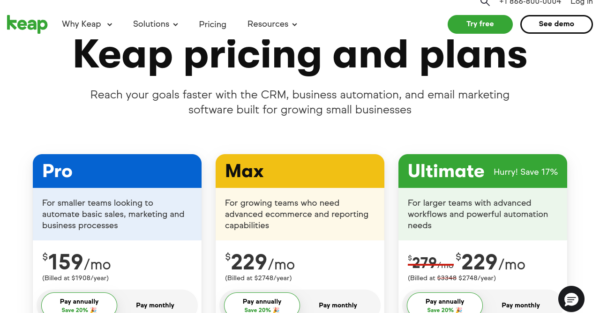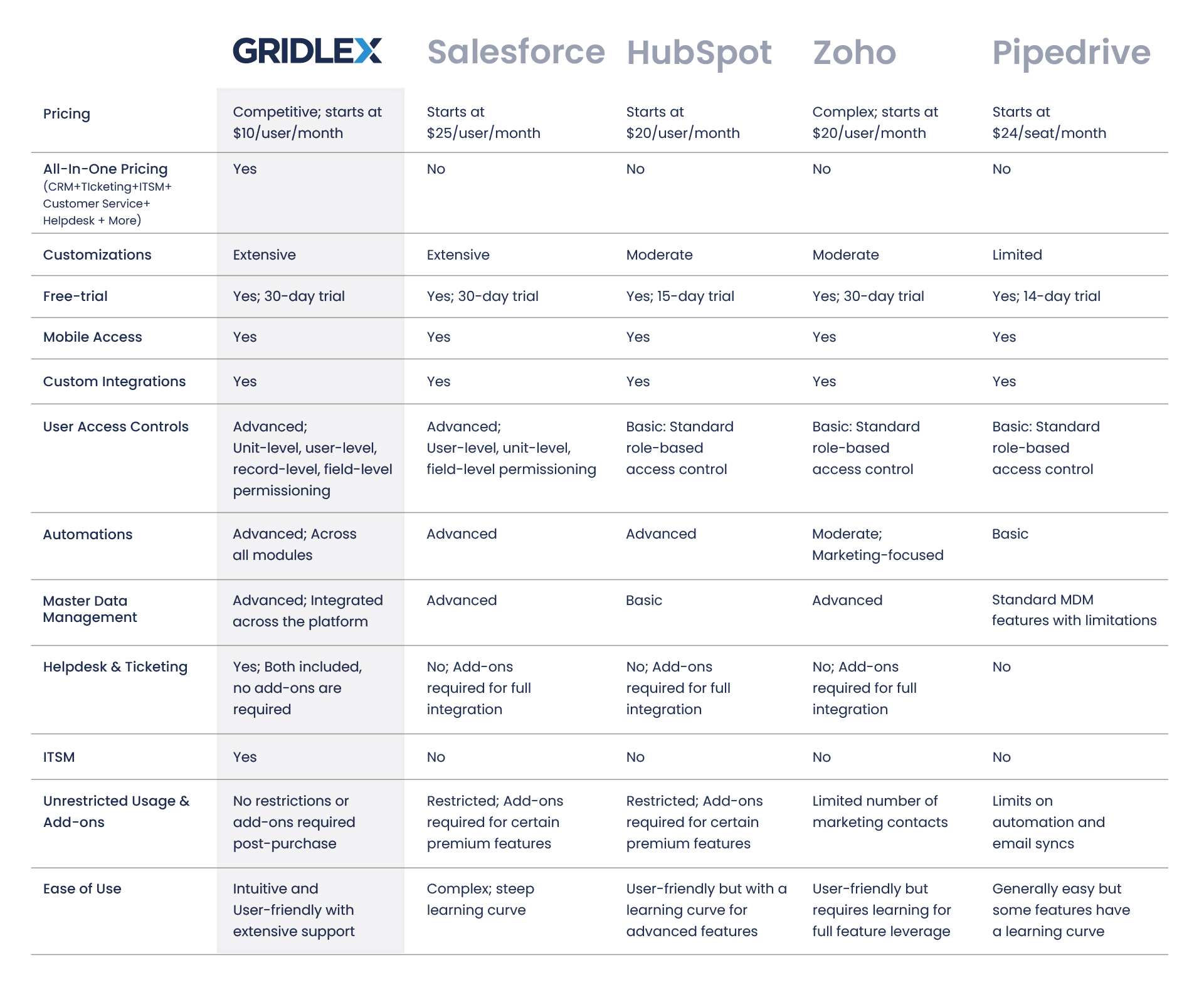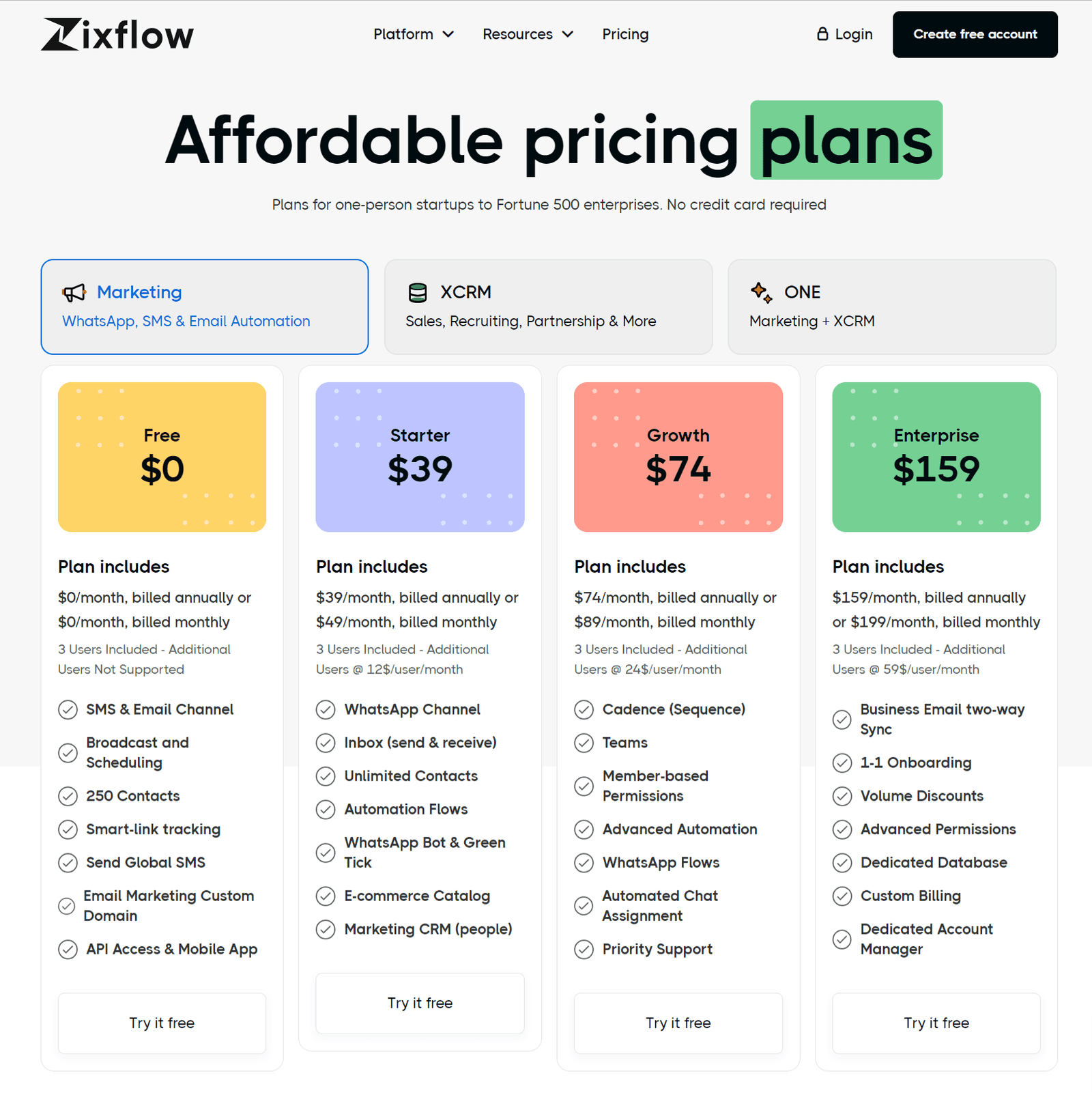Advanced CRM platform pricing and plans vary widely. Costs depend on features and user requirements.
Choosing the right CRM platform is crucial for business success. CRM systems help manage customer relationships efficiently. They offer tools for sales, marketing, and customer support. Different platforms provide various features and pricing plans. Some offer basic plans for small businesses.
Others have advanced options for larger companies. It’s important to compare features and costs. Determine what your business needs. Look for scalability, ease of use, and integration options. This will help you find the best CRM solution. Always consider the total cost of ownership. This ensures you get value for your investment.
Basic Crm Plans
The Basic CRM Plans are perfect for small businesses starting out with customer relationship management. These plans offer essential features to help manage customer interactions, streamline workflows, and improve productivity. Let’s explore the features included and why these plans are ideal for small businesses.
Features Included
Basic CRM Plans come with a range of features designed to meet the core needs of small businesses. These features include:
- Contact Management: Easily store and manage customer information.
- Email Integration: Sync your email accounts for seamless communication.
- Task Management: Assign and track tasks to ensure nothing falls through the cracks.
- Reporting and Analytics: Generate basic reports to understand customer behavior.
- Mobile Access: Access your CRM from any device, anytime.
Ideal For Small Businesses
Basic CRM Plans are perfect for small businesses due to their affordability and simplicity. These plans offer:
- Cost-Effective Solutions: Affordable pricing makes it accessible for startups and small teams.
- User-Friendly Interface: Easy to use with minimal training required.
- Scalability: Grow with your business, adding features as needed.
Small businesses benefit from the efficiency and organization provided by Basic CRM Plans. These plans help manage customer relationships, leading to better business outcomes.

Credit: www.poweredbysearch.com
Standard Crm Plans
Standard CRM plans offer a balance between cost and features. These plans cater to businesses seeking essential CRM functionalities without breaking the bank. Let’s explore the key aspects of Standard CRM Plans.
Enhanced Features
Standard CRM plans include enhanced features to meet growing business needs. Users can enjoy:
- Contact management
- Email integration
- Task automation
- Basic analytics
- Customizable dashboards
These features help streamline operations and improve productivity.
Growing Business Solutions
Standard CRM plans provide solutions for growing businesses. They offer:
| Plan | Monthly Cost | Users | Storage |
|---|---|---|---|
| Basic | $20 | Up to 5 | 10GB |
| Professional | $50 | Up to 15 | 50GB |
These plans scale with your business, offering more resources as needed.
Choosing the right CRM plan is crucial for business growth. Standard plans strike a good balance between affordability and functionality.
Advanced Crm Plans
Advanced CRM platforms offer a variety of plans designed to meet different business needs. These plans come with a range of features and benefits that help organizations streamline their customer relationship management processes. Below, we delve into the premium features and enterprise-level benefits of these advanced CRM plans.
Premium Features
Advanced CRM plans come with a host of premium features designed to enhance productivity and efficiency. These features often include:
- Automated workflows
- Advanced analytics
- Customizable dashboards
- AI-driven insights
- Multi-channel communication support
These features allow businesses to automate repetitive tasks, gain deeper insights into customer behavior, and communicate effectively across multiple channels. The customization options enable users to tailor the CRM to their specific needs, making it a powerful tool for managing customer relationships.
Enterprise-level Benefits
Businesses opting for advanced CRM plans enjoy several enterprise-level benefits. These include:
- Scalability: Easily expand the system as the business grows.
- Enhanced Security: Advanced security measures protect sensitive data.
- Integration Capabilities: Seamless integration with other business tools.
- 24/7 Support: Round-the-clock customer support ensures smooth operations.
- Custom Solutions: Tailored solutions to meet unique business requirements.
These benefits make advanced CRM plans ideal for large enterprises that require robust, scalable, and secure solutions. The integration capabilities ensure that the CRM system works seamlessly with other tools, enhancing overall efficiency and productivity.
| Feature | Benefit |
|---|---|
| Automated Workflows | Save time on repetitive tasks |
| Advanced Analytics | Gain deeper customer insights |
| Customizable Dashboards | Tailor the CRM to specific needs |
| AI-Driven Insights | Make data-driven decisions |
| Multi-Channel Support | Communicate across various channels |
Advanced CRM plans are designed to cater to the dynamic needs of modern businesses. With these plans, companies can ensure they stay ahead in a competitive market.

Credit: www.emailvendorselection.com
Customizable Crm Plans
When searching for the perfect CRM platform, customizable CRM plans can be a game-changer. These plans offer tailored features and scalability to match your business needs. Explore the benefits of these customizable options below.
Tailored Solutions
Customizable CRM plans provide tailored solutions for businesses of all sizes. You can select features that match your specific requirements. This approach ensures you only pay for what you need. Some common customizable features include:
- Contact Management
- Sales Automation
- Customer Support Tools
- Marketing Automation
- Analytics and Reporting
These features help streamline operations and boost productivity. Tailored solutions make your CRM platform work for you.
Scalability Options
As your business grows, your CRM needs may change. Customizable CRM plans offer scalability options to adapt to your evolving requirements. This flexibility ensures your CRM can handle an increasing number of users and data. Key scalability options include:
- Adding New Users
- Expanding Data Storage
- Integrating Additional Features
- Upgrading Support Levels
Having a scalable CRM means you won’t outgrow your system. It can grow with you, ensuring continuous support and efficiency.
| Plan Type | Features | Scalability |
|---|---|---|
| Basic | Contact Management, Basic Reporting | Limited |
| Standard | Sales Automation, Customer Support | Moderate |
| Premium | Advanced Analytics, Marketing Automation | High |
Choosing the right plan depends on your business size and needs. Customizable CRM plans provide the flexibility to tailor and scale as required. This ensures you have the right tools for growth and success.
Comparing Crm Pricing
Choosing the right CRM can be challenging. Comparing CRM pricing is vital for your decision. Understand the cost structure of various CRM platforms to make an informed choice.
Cost Vs. Value
When evaluating CRM pricing, it’s essential to look beyond the initial cost. Consider the value each platform offers. Here’s a breakdown of some popular CRM platforms:
| CRM Platform | Monthly Cost (per user) | Key Features |
|---|---|---|
| Salesforce | $25 – $300 | Lead Management, Customizable Reports, AI Integration |
| HubSpot | $0 – $50 | Email Tracking, Meeting Scheduling, Pipeline Management |
| Zoho CRM | $12 – $45 | Sales Automation, Workflow Management, Analytics |
Consider the value each CRM platform provides. A higher price might offer more advanced features. Balance your business needs with the costs.
Hidden Fees
Be aware of hidden fees that might not be apparent at first glance. These can significantly impact your budget:
- Setup Fees: Some CRMs charge for initial setup or onboarding.
- Customization Costs: Extra charges for custom features or integrations.
- Support Fees: Premium support often comes at an additional cost.
- Data Storage: Additional fees for exceeding data storage limits.
Read the fine print carefully. Ensure you understand all potential costs. Avoid unexpected expenses that can strain your budget.

Credit: gridlex.com
Free Trials And Demos
Choosing the right CRM platform is crucial for any business. Free trials and demos offer a chance to explore different options. They help businesses make informed decisions. This section will discuss how free trials and demos can help in testing features and evaluating usability.
Testing Features
Free trials allow users to test features before committing. They get a firsthand experience of what the CRM platform offers. Key features to test include:
- Contact Management: Add, organize, and manage contacts.
- Sales Automation: Automate sales processes and workflows.
- Analytics and Reporting: Generate reports and analyze data.
- Integration Capabilities: Integrate with other tools and software.
Testing these features helps businesses determine if the platform meets their needs.
Evaluating Usability
Usability is a critical factor in choosing a CRM platform. A free trial allows users to evaluate the ease of use. Key usability aspects to consider are:
- User Interface: Is it intuitive and user-friendly?
- Navigation: How easy is it to navigate through the platform?
- Customization: Can you customize the platform to suit your needs?
- Customer Support: Is support readily available and helpful?
Evaluating these aspects ensures the CRM platform will be easy to use. This reduces the learning curve for your team.
Free trials and demos provide valuable insights. They help businesses choose the best CRM platform for their needs.
Choosing The Best Plan
Choosing the best CRM plan is crucial for business success. It involves understanding your business needs and budget constraints. This guide will help you make an informed decision.
Assessing Business Needs
Identify the specific requirements of your business. Do you need advanced features like automation and analytics? Or, are you a small team that needs basic contact management?
- Basic Features: Contact management, email integration.
- Advanced Features: Automation, analytics, custom reports.
- Team Size: Small, medium, large.
Match these needs with the features offered by different CRM plans.
Budget Considerations
Understanding your budget is vital. CRM plans vary in cost. Ensure you get value for your money.
| Plan Type | Monthly Cost | Features |
|---|---|---|
| Basic | $10 | Contact management, email integration |
| Standard | $30 | Automation, custom reports |
| Premium | $60 | Advanced analytics, priority support |
Choose a plan that fits your budget and meets your needs.
Frequently Asked Questions
What Is The Cost Of Advanced Crm Platforms?
The cost of advanced CRM platforms varies. It typically ranges from $12 to $150 per user per month. Prices depend on features and user needs.
Are There Free Advanced Crm Plans Available?
Yes, some advanced CRM platforms offer free plans. These plans have limited features and are ideal for small businesses.
What Features Do Premium Crm Plans Offer?
Premium CRM plans offer advanced features. These include automation, analytics, customization, and integrations with other tools. They improve business efficiency.
How Do I Choose The Right Crm Plan?
Choosing the right CRM plan depends on your business needs. Evaluate features, pricing, and scalability. Trial versions can help with decision-making.
Conclusion
Choosing the right CRM platform is crucial for business success. Evaluate different pricing plans to find the best fit. Understand your needs and budget before making a decision. A good CRM can enhance customer relationships and boost efficiency. Invest wisely to see long-term growth and satisfaction.





